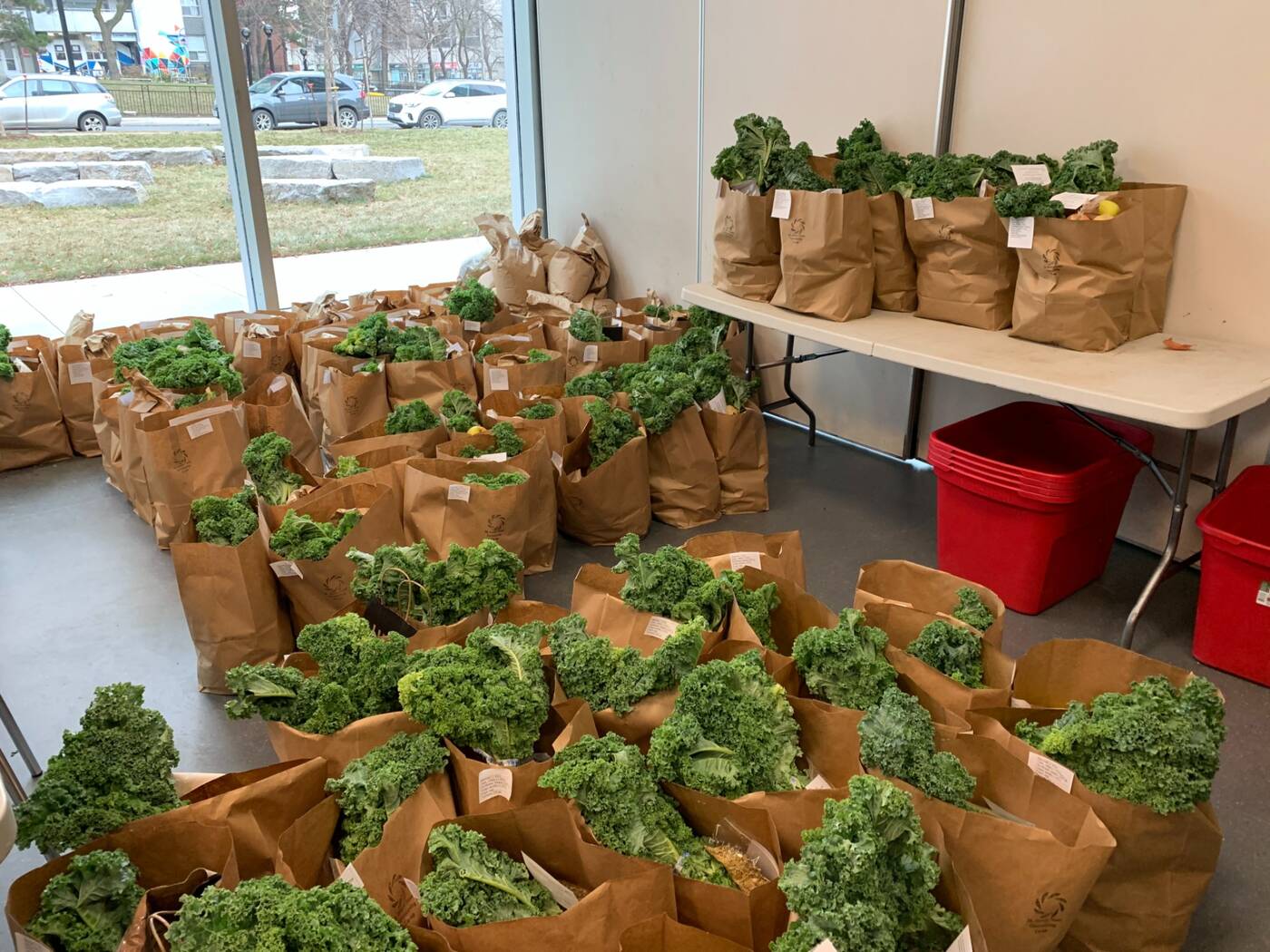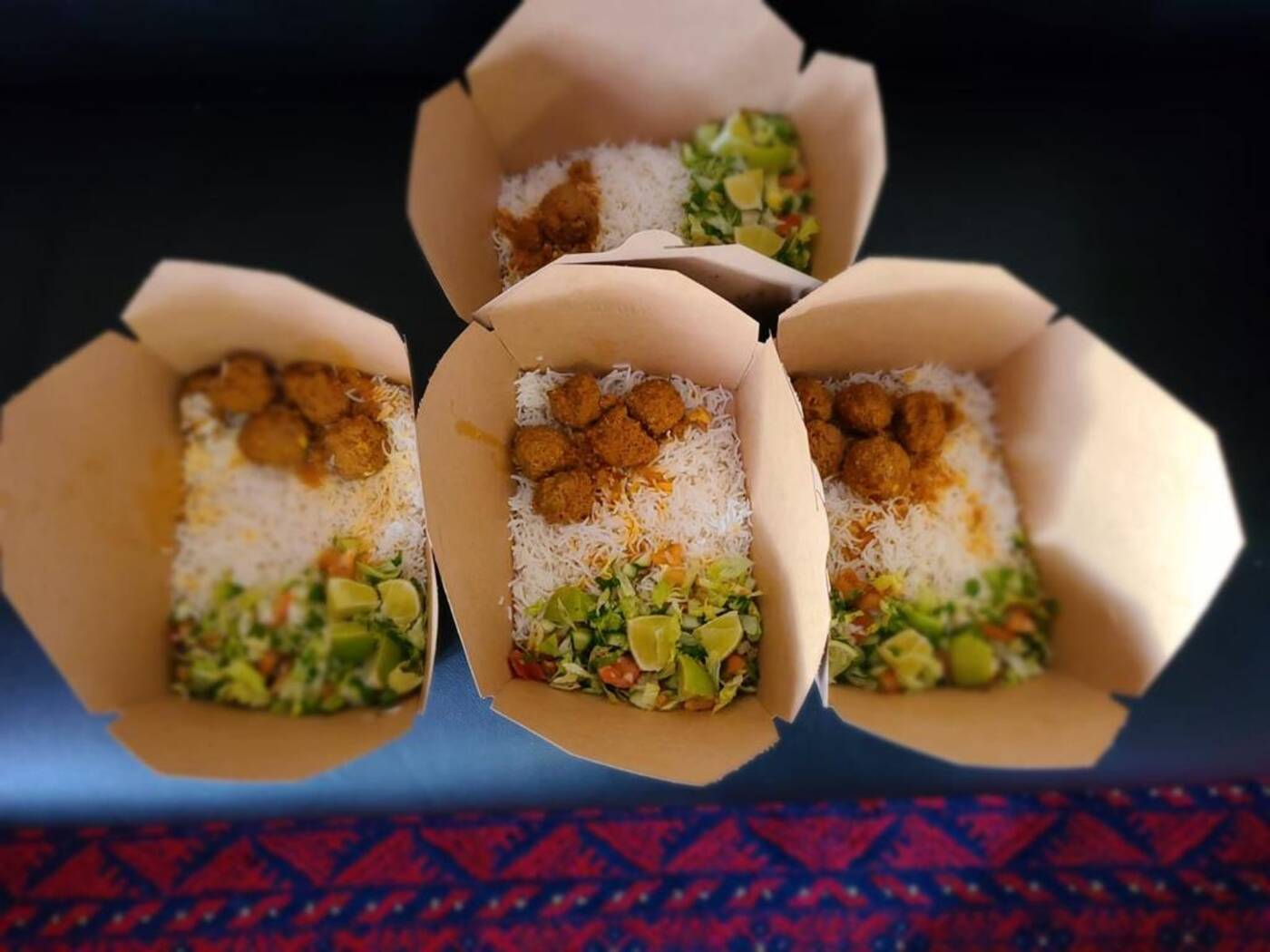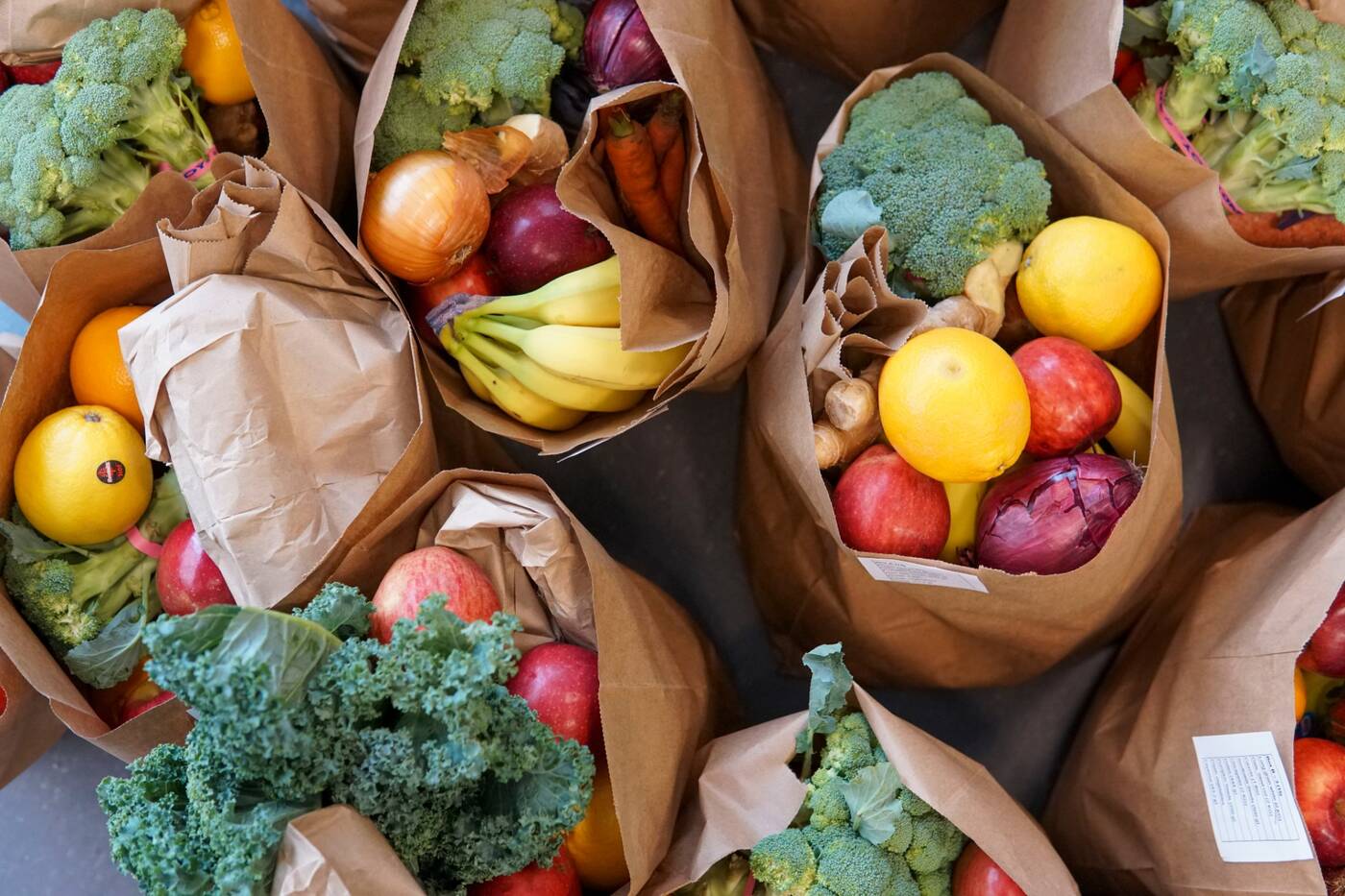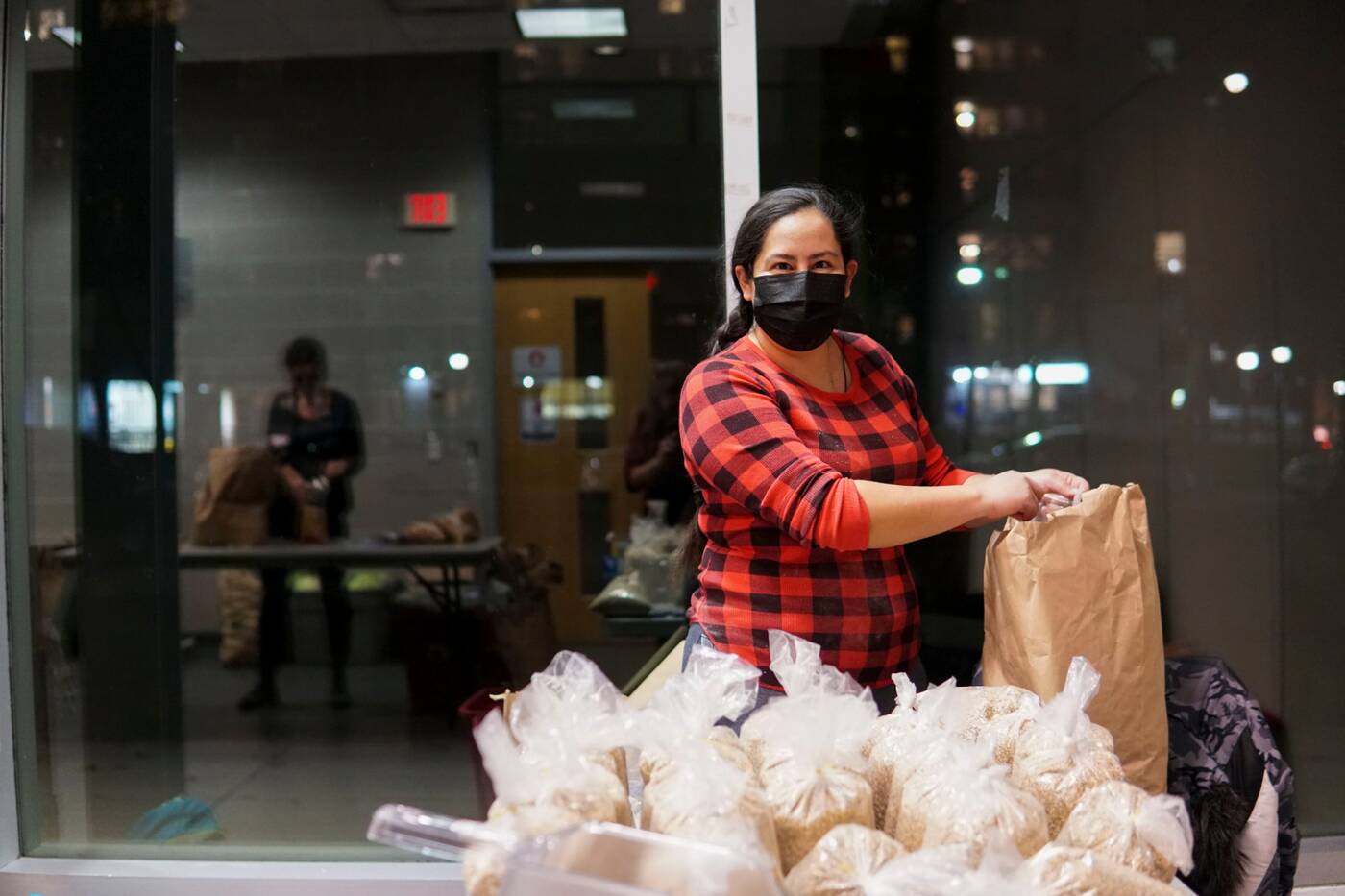
Toronto co-op giving boxes of free food to vulnerable people needs help to continue
While already prevalent before the pandemic began, food insecurity in Toronto has only worsened as a result of COVID-19 — particularly in neighbourhoods where vulnerable residents have been disproportionately affected by loss of income and the virus— and community organizations all over the city have been stepping up to help those in need.
In St. James Town, for example, one of the most dense and diverse neighbourhoods in all of Canada, residents have been struggling with food insecurity for years, and the pandemic has only exacerbated the issue.
"St. James Town is food insecure in that it has insufficient financial access to adequate, safe, nutritious, and culturally-relevant food," said Josephine Grey, founder and board member of the St. James Town Community Co-op.
Established in 2015, the co-op is resident-led and does sustainable development in St. James Town with a focus on food security and climate resilience.
Grey said they run a community garden, a bulk food buying club, field trips to local farms, educational workshops, and community meals.
"The Co-op spearheads the St. James Town-based OASIS Food Hub: a model for an urban integrated hub for affordable and sustainable food," said Grey. "We have been working with the City of Toronto and local organizations to establish OASIS as a long-term step towards food sovereignty in St. James Town."
And from December 2020 to February 2021, they are also running an Emergency Food Relief Program for residents facing food insecurity as a result of COVID-19.
 According to the program's project manager, Avery McNair, the box service is a short-term food security project, funded by the Canadian Red Cross, that is informed by the community's pandemic-specific food needs and works to cater to the diversity of the 20,000-person population.
According to the program's project manager, Avery McNair, the box service is a short-term food security project, funded by the Canadian Red Cross, that is informed by the community's pandemic-specific food needs and works to cater to the diversity of the 20,000-person population.
The program has three components: healthy food boxes that are packed and delivered on a bi-weekly basis to families and individuals in the neighbourhood, culturally-responsive home-cooked meals that are delivered to isolated residents thanks to a partnership with Auntie Amal's Community Centre, and online events and educational workshops on topics such as sprouting and fermentation to compliment the food boxes.
 "With just a handful of posters and word of mouth, we have continued to receive more demand than our 200 weekly boxes can fulfill," said McNair.
"With just a handful of posters and word of mouth, we have continued to receive more demand than our 200 weekly boxes can fulfill," said McNair.
"At the onset of the program, we had a waiting list of over 100 in under two weeks. We have had to significantly reel in our outreach in attempt to accommodate the demand we are already receiving. The need for food security programming in the neighbourhood is huge — with the funding we have, we are only able to help a very small fraction of those in need."
The food boxes contain a variety of dried goods and fresh fruit and vegetables, according to food coordinator Yasmine El Hamamsy, such as organic legumes, carrots, apples, kale, organic eggs, organic potatoes, and more.
"We are proud to prioritize the quality of the food and not just the quantity, and are able to purchase non-GMO and often organic dried goods by buying them in bulk," El Hamamsy told blogTO.
"We also source from our local farm partners including Fish Tree, Mount Wolfe, and Wider Sky Farm. From past community-based consultations and feasibility studies, we have learned that this is really important to St. James Town residents."
 She added that at the next distribution, residents will have the option to select a Caribbean-specific food box that will include fruit and vegetables sourced through partners at Afri-Can Food Basket and Foodshare.
She added that at the next distribution, residents will have the option to select a Caribbean-specific food box that will include fruit and vegetables sourced through partners at Afri-Can Food Basket and Foodshare.
But funding from the Red Cross grant runs out on Feb. 19, and the co-op has also yet to secure appropriate, permanent work space to continue their efforts.
"The need to secure space to work from is urgent, and we are currently running a petition to secure permanent space in St. James Town for food security work," said El Hamamsy. "If we don't secure permanent space, that will be the official close of our emergency food program."
The change.org petition has so far garnered 7,736 signatures since it was created one month ago, and co-op members have also started a fundraiser in an effort to raise money to extend the food relief program.
"We are working to raise the money needed to extend it through a GoFundMe Campaign, and are in the process of applying for grants to offer more food support in both the ongoing pandemic and food security emergencies," El Hamamsy told blogTO. "While our funding is coming to a close, the need is only increasing."
 For those interested in donating, Grey said $10 buys a home-cooked meal for an isolated resident, $20 purchases a nutritious grocery box for an individual or small family, $40 covers a nutritious grocery box for a large family, $120 buys nutritious groceries for three families, and $400 provides nutritious groceries for 10 families.
For those interested in donating, Grey said $10 buys a home-cooked meal for an isolated resident, $20 purchases a nutritious grocery box for an individual or small family, $40 covers a nutritious grocery box for a large family, $120 buys nutritious groceries for three families, and $400 provides nutritious groceries for 10 families.
But while the continuation of the food box program may be in jeapordy, El Hamamsy said the bulk food buying club, community garden, and co-op as a whole continue to work towards a self-sufficient, healthy, and resilient food hub for the neighbourhood, so they can not only address the immediate situation but ensure long-term healthy food security in St. James Town and beyond.
"Across the world, we have seen that the pandemic disproportionately impacts racialized, ethnic minority, low-income, and underserved communities. St. James Town has been hit particularly hard both by the rate of illness from COVID-19 and the rate of pandemic-related fallout including income loss and food insecurity," said McNair.
"This is what we are seeing in St. James Town. We can understand the severity of the crisis in St. James Town currently as an indicator of the food crisis that our city and country is on path to experience if we don't make major changes to our food system, fast."
| St. James Town Community Co-op |
Latest Videos
Latest Videos
Join the conversation Load comments







